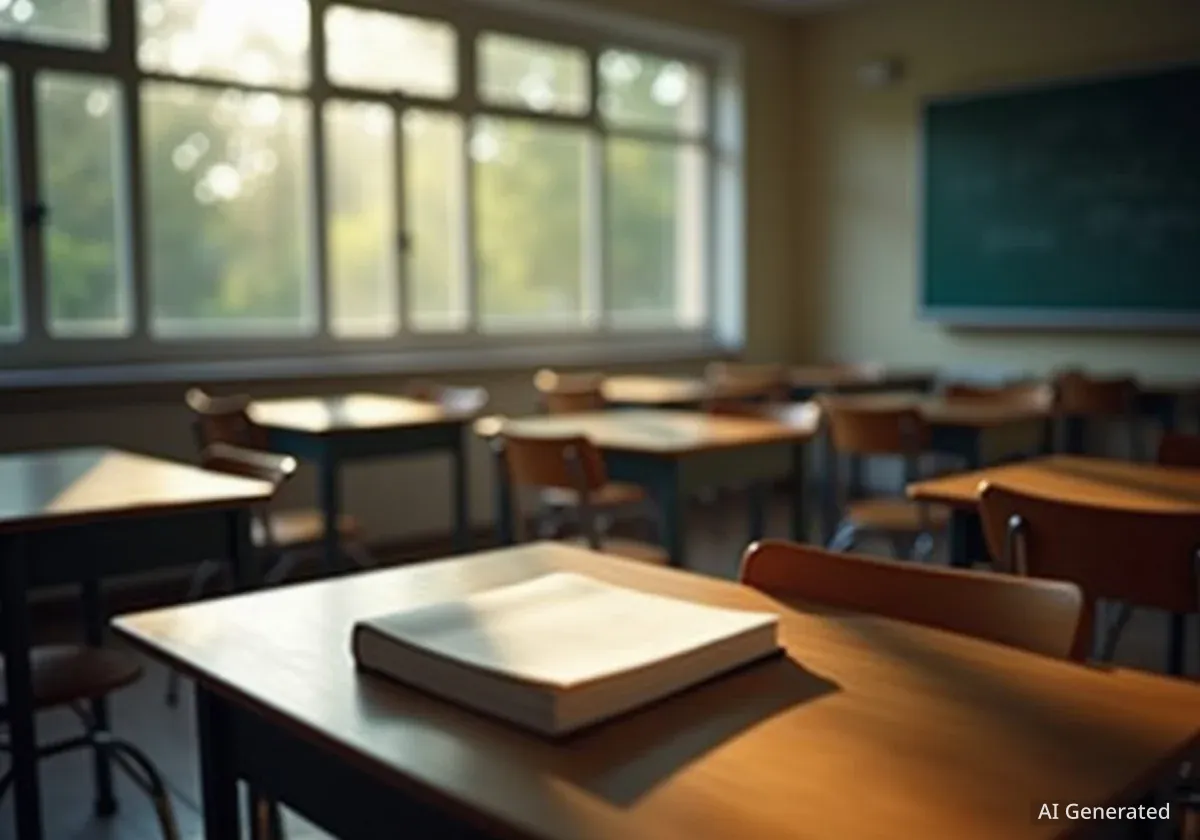Penn State University's Wilkes-Barre campus is facing closure, a decision attributed to declining enrollment. This move has sparked significant concern among students and local community members who question the university's priorities, pointing to recent executive salary increases and substantial athletic facility renovations.
Key Takeaways
- Penn State Wilkes-Barre campus is among seven commonwealth campuses slated for closure.
- Enrollment at Wilkes-Barre has dropped by approximately 40% over the last decade.
- Students criticize the university's decision in light of President Bendapudi's nearly 50% pay raise, bringing her salary to $1.4 million.
- A $700 million renovation of Beaver Stadium is underway, funded by Intercollegiate Athletics, separate from the university's educational budget.
- The Wilkes-Barre campus hosts a unique surveying program, the only one within Penn State's system, and provides a crucial local educational resource.
Uncertainty Grips Wilkes-Barre Campus
The atmosphere at Penn State Wilkes-Barre this fall semester is marked by a palpable sense of uncertainty. While classes continue, the looming closure creates distress for students who had planned to complete their degrees at the Luzerne County campus. Many now face the challenge of transferring to other universities, navigating credit transfers and new academic environments.
Sophomore Aaron Hardy expressed his disappointment, stating, "I wanted to graduate here. Now I have to transfer to another university just to make sure my credits transfer over." This sentiment is common among the roughly 300 students currently enrolled.
Enrollment Decline
Penn State Wilkes-Barre has seen a 40% decrease in enrollment over the past decade, a key factor cited by the university for its closure decision.
Student Questions University Priorities
Many students on the Wilkes-Barre campus believe the university's financial decisions do not align with its stated reasons for closing campuses. Junior Gabby Avila highlighted concerns about transparency, noting, "We knew it was coming before the official email was sent out because there was information leaked. I think that was completely unfair."
A significant point of contention is the recent salary increase for Penn State President Neeli Bendapudi. She received a nearly 50% pay raise, elevating her annual salary to $1.4 million. This makes her the second-highest-paid public university president in the United States.
"I think there's a lot of students who could benefit more from that than she can. I think she makes enough as is," said Gabby Avila.
Freshman Kylie Montigney echoed this view, suggesting the funds could have supported the struggling campus. "I wish it was like that salary could've come to our campus for the next few years. I get it, at the same money is money. I do have a lot of mixed feelings about it, but at the same time, that money could've come to us," Montigney explained.
Stadium Renovation vs. Campus Closure
Adding to student frustration is the ongoing $700 million renovation of Beaver Stadium. Students question why such a large investment in athletics is prioritized while regional campuses face closure.
Aaron Hardy asked, "Why couldn't that money come to us? You want to keep it where these kids can still get an education, why couldn't just a little bit for that money come to us?"
Athletic Budget Autonomy
University Park officials state that Penn State Athletics operates as a self-sustaining department. Its revenues cover operating costs, and the Beaver Stadium revitalization project is funded entirely by Intercollegiate Athletics. No tuition dollars or general university funds are used for this project.
The athletic budget also covers coach James Franklin's $50 million buyout clause, further highlighting the separate financial streams within the university system.
The Future of Unique Programs and Community Access
The closure of Penn State Wilkes-Barre also jeopardizes unique academic programs. The campus hosts one of the few surveying programs nationwide, and the only one within the entire Penn State system. Students from across the country enroll specifically for this major.
Gabby Avila, a junior in the surveying program, expressed concern. "We don't know what is going to happen with the program yet. There's a lot of talk about where we're going to move to, but we don't have anything set in stone from anyone yet." She fears the program might cease to exist, impacting future students and a vital profession.
Beyond specific programs, the campus provides an accessible and supportive environment for many students. Aaron Hardy, who has autism, values the small size and close-knit community. "I have autism. I don't like a lot of crowded places. I like how small this campus is. I like how close I am with a lot of these teachers and how close I got with some students. When you go to U-Park, that's a lot of people," he explained.
A Legacy of Generosity in Question
The campus itself has a rich history rooted in local philanthropy. In the 1960s, Richard Robinson, the nephew and adopted son of John and Bertha Conyngham, gifted 40 acres of land to Penn State. His vision was to provide educational opportunities for students in northeastern Pennsylvania, allowing them to learn closer to home.
The Hayfield House, the main building on campus, was once the Conyngham family home. It still features opulent details such as 14-karat gold bathroom fixtures and stained-glass windows from a Paris cathedral, reflecting the family's historical wealth.
Will Conyngham, the great-nephew of John and Bertha, lives near the campus and hopes the future use of the property honors the original gift. "I would like to see a suitable successor, whether it's an educational institution or a retirement community, nursing home retirement community might be an option. Vocational education might be an option. But I have no idea what's going to become of it."
As the Penn State Wilkes-Barre campus grows quieter, its impending closure leaves students feeling unheard. Gabby Avila summarized this sentiment, stating, "It's almost as if we don't matter. It's almost as if the small rural areas in Pennsylvania don't matter the way that the big University Park does or the big commonwealth campuses do." The future of the historic grounds and the educational legacy they represent remains uncertain.





